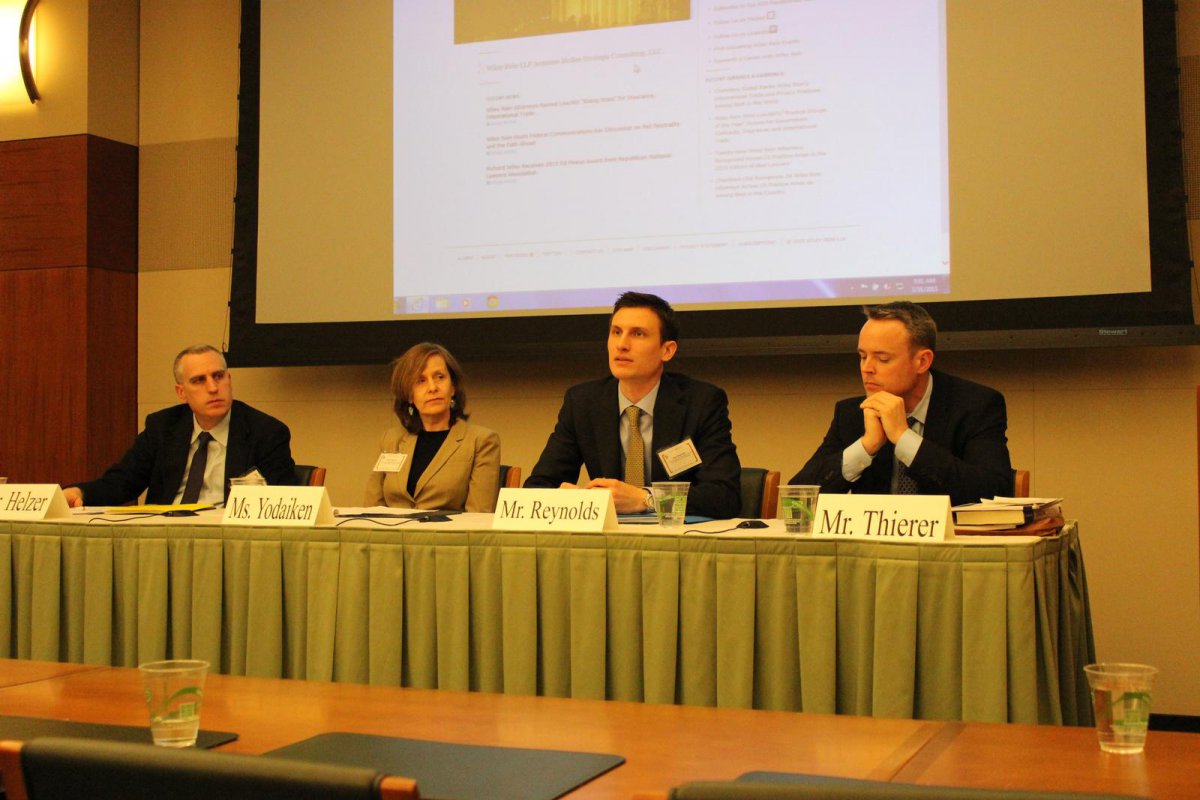
Self-driving cars and biochip transponders on farm animals are examples of the "Internet of Things," defined as devices or sensors - other than computers, smartphones, or tablets - that connect, store or transmit information with or between each other via the Internet. The growth in such devices is exploding. Where it is all headed and whether the country has the ability to support the 25 billion connected devices already in use was the subject of the Columbus School of Law's annual spring symposium, held on March 31, 2015, at Wiley Rein LLP in Washington, DC.
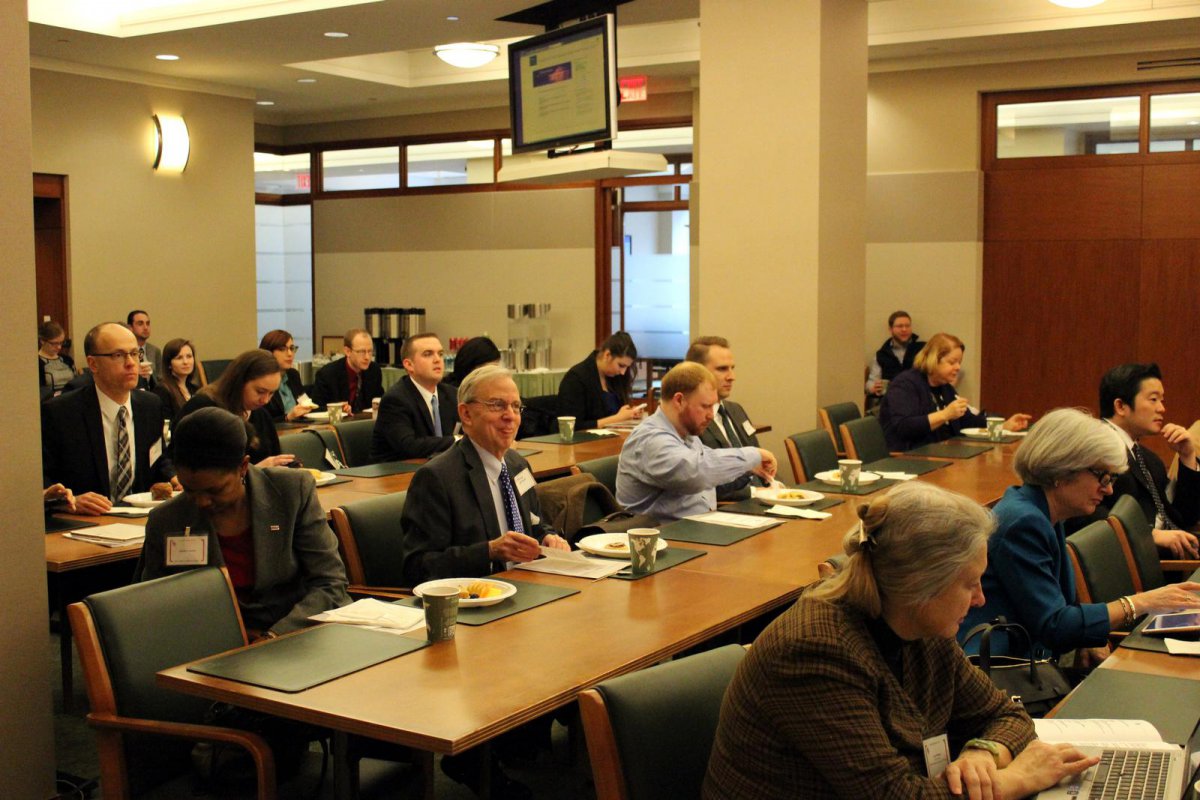

Sponsored by CommLaw Conspectus: Journal of Communications Law and Technology Policy, and the Institute for Communications Law Studies in association with the Federal Communications Bar Association, "The Internet of Things: Device Innovation and Network Implications" presented two panels of experts to discuss the regulatory landscape, commercial outlook and technological challenges associated with the explosive growth of the Internet of Things (IoT).
After introductory remarks by Andrew Yingling, Editor-in-Chief, CommLaw Conspectus, and Daniel F. Attridge, Dean and Knights of Columbus Professor of Law, the keynote address was given by Commissioner Maureen K. Ohlhausen, Federal Trade Commission.
She discussed the highlights of an FTC report released in January that recommended concrete steps that businesses can take to enhance and protect consumers' privacy and security, as people continue to embrace health and fitness monitors, home security devices, connected cars and household appliances, and many other IoT devices.
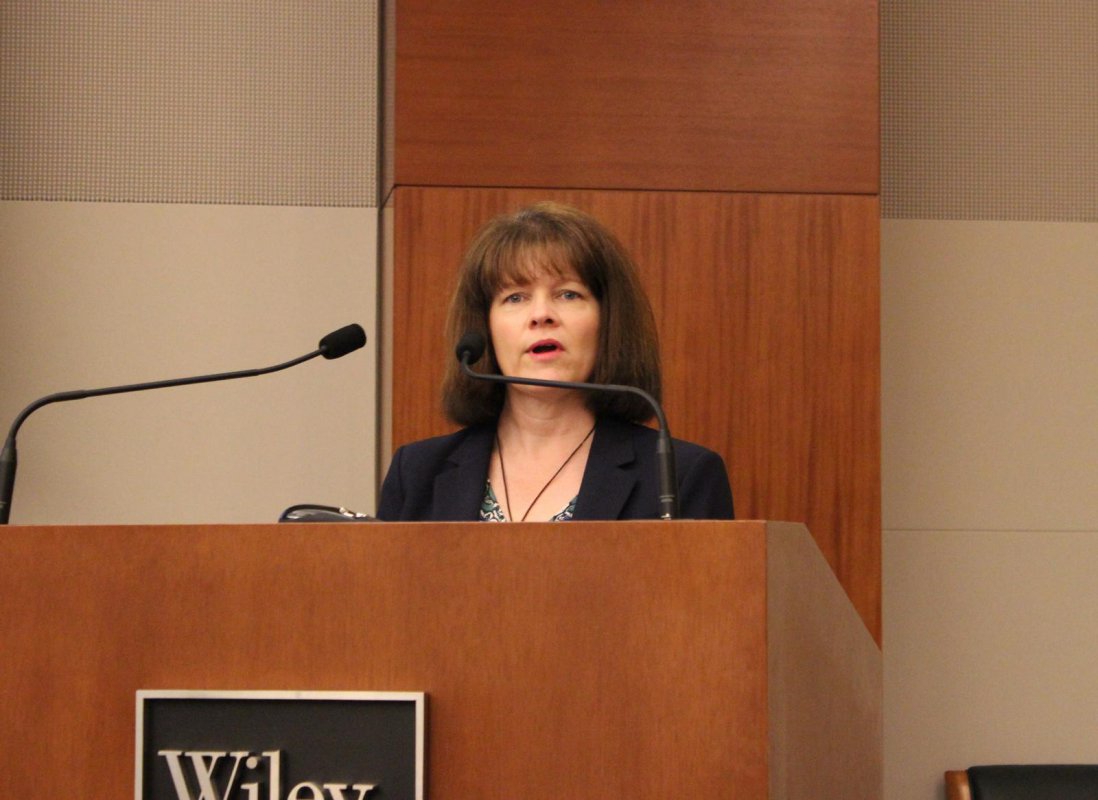
The report contained six significant recommendations for companies developing Internet of Things devices. Ohlhausen called some of them "overly prescriptive," and said that her agency's report, while generally helpful, "missed an opportunity" to proactively engage with future problems that will surely be presented by the rapid expansion of the Internet of Things. "The FTC can help by using its own unique set of reporting tools," said Ohlhausen, citing enforcement actions, consumer education, and business guidance as ways to help protect user privacy. "I'm extremely optimistic about future applications of Internet of Things technology," Ohlhausen concluded. Closing remarks were offered by Professor Donna Coleman Gregg, the outgoing director of the Institute for Communications Law Studies who earned a round of applause for her stewardship of the program.
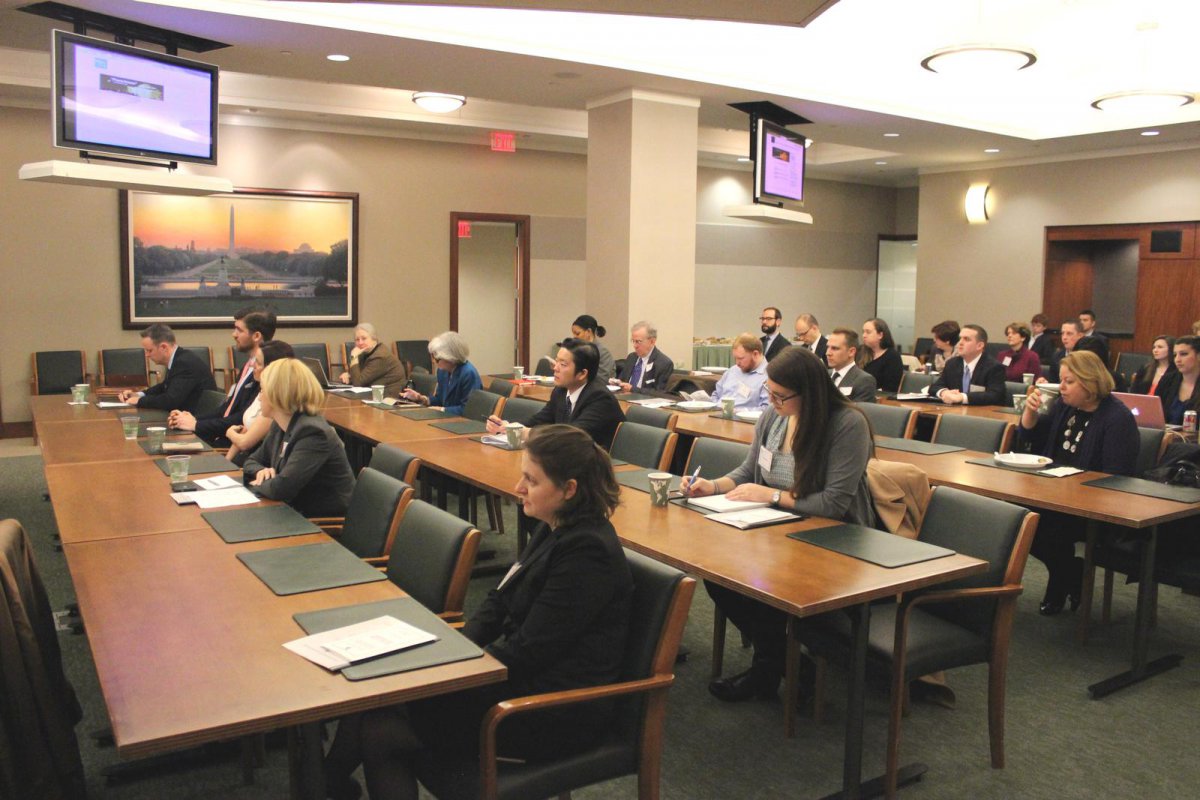
Panel One: "Devices, Data and Regulatory Diversity."
Moderator Adam Thierer, Senior Research Fellow, Mercatus Center at George Mason University
Panelists Alex Reynolds, CUA Law Class of 2012, Senior Manager and Regulatory Counsel, Consumer Electronics Association Ruth Yodaiken, Senior Attorney, Division of Privacy and Identity Protection, Federal Trade Commission Chris Helzer, Chief Engineer, Wireless Telecommunications Bureau, Federal Communications Commission
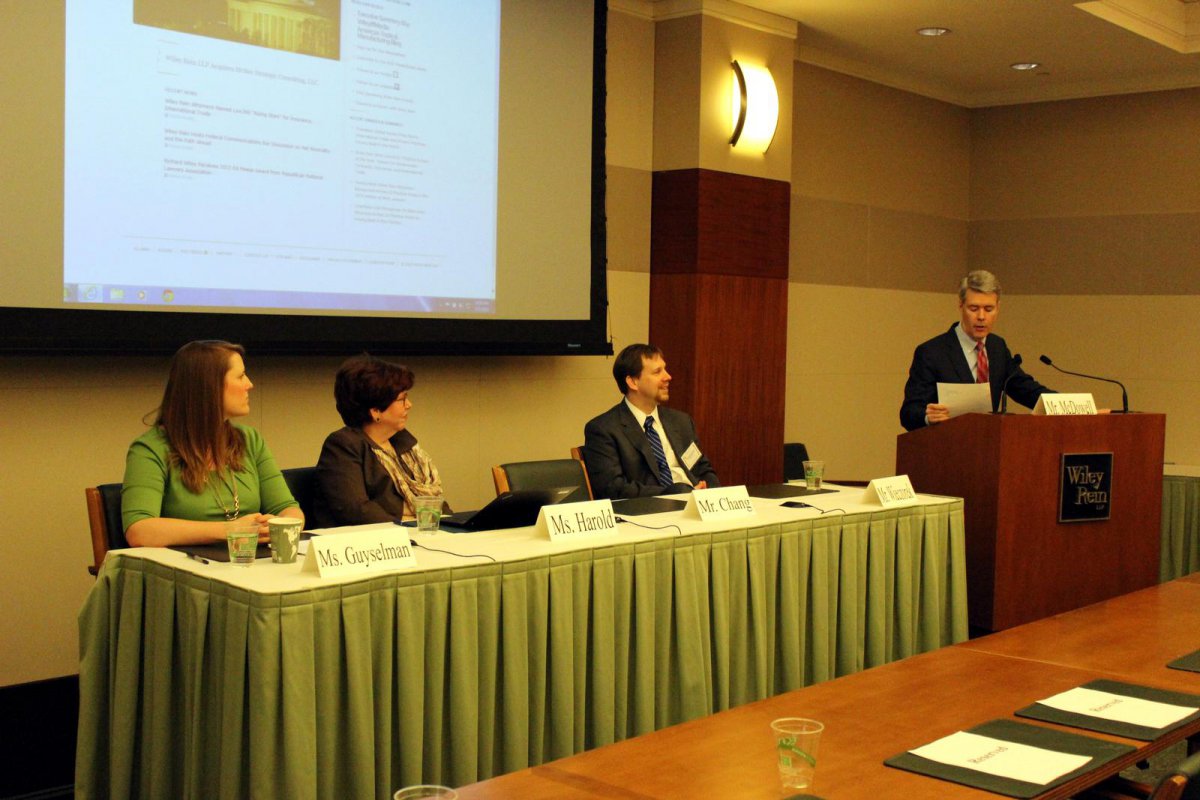
Panel Two: The Billion Device Question: How Networks Will Support IoE
Moderator Robert McDowell, Partner, Wiley Rein LLP and former Commissioner, Federal Communications Commission
Panelists Christopher Wieczorek, CUA Law Class of 2008, Principal Corporate Counsel, T-Mobile USA Inc. Rosemary Harold, Partner, Wilkinson Barker Knauer, LLP Shawn H. Chang, Of Counsel, Wiley Rein LLP Kelsey Guyselman, CUA Law Class of 2012, Counsel, Committee on Energy and Commerce, U.S. House of Representatives
